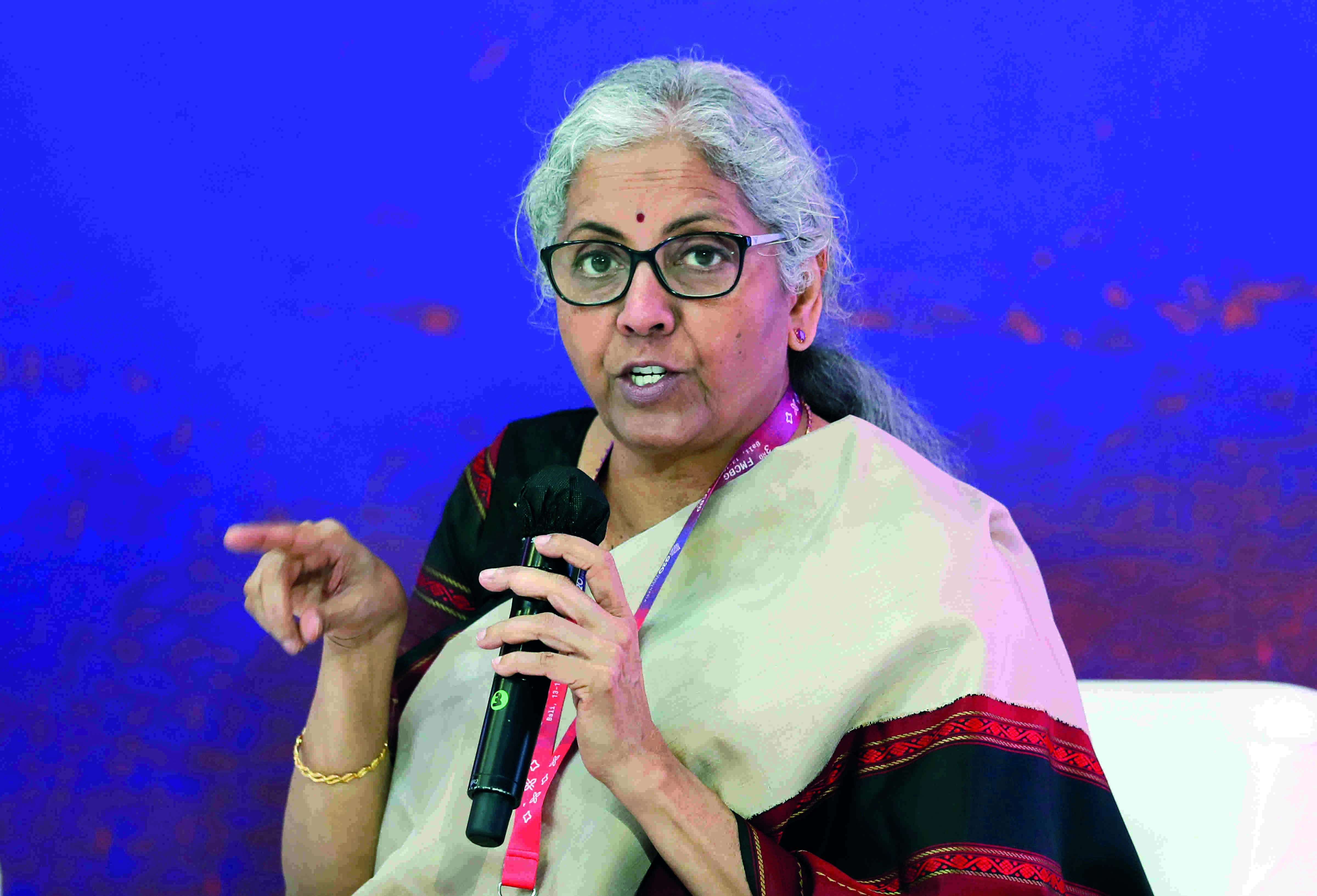Need blended finance, leveraging pvt capital to achieve SDGs: FM

New Delhi: Finance Minister Nirmala Sitharaman on Thursday underlined the need for blended finance and leveraging private capital to achieve sustainable development goals (SDGs).
She was speaking at the Sustainable Finance for Climate Transition roundtable in Bali, Indonesia, which is hosting the third G20 Finance Ministers and Central Bank Governors (FMCBG).
"The Union Finance Minister highlighted the role of #MDBs, use of #BlendedFinance and leveraging #PrivateCapital for scaling up #SustainableFinance and reaching #SDGs," the finance ministry said in a series of tweets.
The finance minister also shared India's two-pronged energy transition plan — promoting renewables in the energy mix and adopting innovative policy measures — for increasing energy efficiency and security. "FM Smt. @nsitharaman emphasised the #Panchamrit strategy to tackle #ClimateChange, as envisaged by Prime Minister Shri @narendramodi," another tweet said.
At the COP26 conference in Glasgow, Scotland, last year, Prime Minister Modi took the pledge of 'Panchamrit' or five-nectar elements in India's fight against climate change.
The 'Panchamrit' commitment seeks to raise India's non-fossil fuel-based energy capacity to 500 GW by 2030, ensure that 50 per cent of the country's energy requirements would be met by renewable energy sources by the same year, reduce the total projected carbon emission by one billion tonnes, decrease the carbon intensity of the economy to less than 45 per cent and finally, achieve net zero emissions by 2070.
The SDGs adopted by member countries of the United Nations in 2015 are intended at fostering peace and prosperity for people and the planet.
Some of these 17 goals are no poverty, zero hunger, good health and wellbeing, quality education, gender equality, clean water and sanitation, affordable and clean energy, decent work and economic growth, industry, innovation and infrastructure.
It also includes reduced inequalities, sustainable cities and communities, responsible consumption and production, climate action, life below water, life on land, peace, justice and strong institutions and lastly strengthening global partnerships for the goals.
Sitharaman also held bilateral meetings with some of her counterparts. During her meeting with Indonesian finance minister Mulyani Indrawati, she discussed progress made under G20 Indonesia Presidency.
Both leaders deliberated upon ways to collaborate further on G20 Finance agenda, including global health, sustainable finance, financial inclusion, climate and infrastructure.
Moreover, Finance Minister Nirmala Sitharaman on Thursday called on G20 countries to ensure that developing nations do not face any "unintended consequences" of the proposed global minimum tax deal at the G20 and earn "meaningful revenues".
She also said that the concerns of developing nations should also be addressed while formulating rules for the proposed two-pillar tax deal to ensure a fairer and inclusive tax system.
"...it is necessary to guard against any unintended consequences, which may have an adverse impact on developing countries," she said while addressing the 'G20 Ministerial Symposium on Tax and Development' in Bali.
A total of 130 countries, including India, had in July last year agreed to a overhaul of global tax norms to ensure that multinationals pay taxes wherever they operate and at a minimum 15 per cent rate. The finance ministry had then said that some significant issues, including share of profit allocation and scope of subject to tax rules, are yet to be addressed and a 'consensus agreement' would happen after working out the technical details of the proposal.
The proposed two-pillar solution consists of two components — Pillar One which is about reallocation of additional share of profit to the market jurisdictions and Pillar Two consisting of minimum tax and subject to tax rules.
Developing countries make up almost one-third of the membership of the G20 inclusive framework for taxation.



